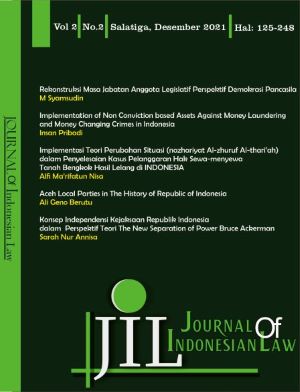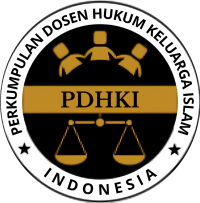Perubahan Mekanisme Pembentukan Perundang-Undangan di Indonesia Perspektif Fiqh Siyasah Dusturiyah.
DOI:
https://doi.org/10.18326/jil.v4i1.1000Keywords:
Undang-Undang No 13 Tahun 2022, UU PPP, Pembentukan Peraturan Perundang-Undangan.Abstract
The study aimed to examine the creation of Act 13 in 2022, the second amendment to Act 12 in 2011, on the establishment of regulations from the perspective of the Siyasah Dusturiyah; the Act arises as an outcome of a MK ruling mandating a basic guide site in the performance of a bill, as well as confirmation of its participation. The issue to be considered is whether Act 13 has achieved its mandate since its birth in 2022 due to MK's decision. With this brief summary, it is fascinating to investigate the following problems: 1) how the legislation of No. 13 in 2022 affected the second Act of No. 12 in 2011. And 2) how has the creation of the law in the year 2022 been evaluated and reviewed from a rural standpoint. The research method used is normative law research using research resources. In addition, the author employs the legislative technique (statute approach). The study's findings are as follows: 1) many of the issues still need to be addressed in the 2011 alteration of Act No. 12, and there is a problem with enabling it to justify writing after the President and Congress have adopted a law. This issue provokes polemics due to the sacred level of law formation being the stage of joint legalization. 2) According to the perspective of Siyasah Dusturiyah, there is a distinction between the mechanics of legislation in Indonesia and the concept of producing legislation in Islam. Nonetheless, the 13/2022 law has not met the principles outlined in Siyasah Dusturiyah.








